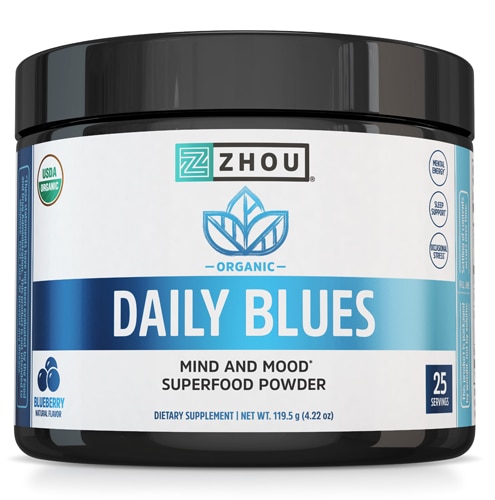[vc_row][vc_column][vc_column_text]From emotional support water bottles to
#magnesiumglycinate’s potential power to mitigate anxiety, TikTok is ablaze with wellness crazes, with many videos garnering
billions of views.
Add shadow work to the list.
Although the concept was originally introduced in the 1930s by psychiatrist Carl Jung—one of the godfathers of modern psychology and a contemporary of Sigmund Freud’s—it’s recently been touted as one of the latest and greatest methods for conquering trauma and feeling “whole.” Toss in the fact that Keila Sheehan’s
The Shadow Work Journal: A Guide to Integrate and Transcend Your Shadows has skyrocketed to the top spot on Amazon’s bestseller list, and, well, you may have been in the shadows if you haven’t heard at least
one peer talk about the fad.

But what is shadow work for mental wellness, really? And should you weave it into your arsenal of self-care tools?
Let’s examine the practice’s pros and cons—and a handful of other,
natural ways you can harness psychological health.
What is shadow work, exactly?
Shadow work stems from Jung’s theory that we all possess a shadow self—a darker vein of our psyches that we stifle and even internally deny in the name of social and personal acceptance. Or, as the man himself worded it, one’s “shadow” is “that hidden, repressed, for the most part inferior and guilt-laden personality whose ultimate ramifications reach back into the realm of our animal ancestors.”
Think of it this way: Emotions such as anger, jealousy and resentment—and the inclination toward greed, hyper-reactivity, over-indulging and perfectionism—are experienced by all of us, yes, but many, and maybe even you, tend to keep these parts buried or out of view, even when alone.
While you may be nodding in agreement—you might never down two saucer-sized desserts on a first date or even let yourself contemplate the act in the quiet of your home—a significant section of the mental health sphere suggests that refusing to unearth and accept these sides of ourselves may lead to a cornucopia of complications, such as:
- a profound disconnection from our authentic selves
- an incapacity to anticipate, and manage, our psychological triggers, like fear of abandonment, rejection and dates related to a life-changing event (such as the death of a loved one or a traumatic occurrence)
- mental health conditions, including depression, anxiety, disordered eating and substance use
- a persistent sense of “interior conflict”
- interpersonal difficulties, such as troubled relationships in the workplace or codependency in a romantic partnership
In sum?
Shadow work asks people to assess the unconscious “strands” of themselves. This allows them to integrate these aspects into their conscious so they can operate in life as realistically and genuinely as possible—an undertaking that can be approached solo or with a licensed therapist, shaman, religious leader or other spiritual guide.
Got it. But why do we have a shadow in the first place?
From rage and envy to gluttony and selfishness, we’ve been culturally conditioned to deem these feelings and actions—in ourselves and others—with judgment, guilt and shame.
Ever heard of the maxim, “If you spot it, you’ve got it?” This ties into Jung’s hypothesis—meaning, when we see flaws in others, we’re “seeing” the same perceived but concealed faults in ourselves.
With all of this in mind, we unwittingly push these less-than-stellar facets of our personalities far below the surface, lest we too be criticized or criticize ourselves.
And yet, this isn’t the sole reason. Our shadows can also represent:
- Unresolved trauma and painful experiences
- Sexual uncertainty
- Repressed desires
So why is shadow work for mental health trending?
TikTok has an uncanny knack for revitalizing old and even ancient self-care practices. (Hello again,
gua sha and
functional mushrooms!) Consider, too, the fact that trends, whether it’s in skincare or mental health, have a limited lifespan.
Why?
Because the rapidly-paced, instant gratification era we live in compels us to be continually on the search for The Next Best Thing.
That aside, numerous TikTokers have claimed that shadow work has helped them sift through and process cringe-inducing things like humiliation, regret and self-reproach.
Others have asserted that shadow work has been one of the keys to working through grief and anxiety.
Given that an estimated 19.1 percent of the U.S. population experiences the latter—to say nothing of
the dearth of mental health professionals across the country—it’s no wonder Gen Zers and older demographics are seeking relief on social media.
What are the benefits of shadow work?
In truth, it depends on who you talk to in the mental health field. Advocates of shadow work believe it can assist people with:
- Understanding where their anger arises from, which may lend itself to greater emotional control
- Recognizing—and stopping—self-sabotaging behaviors
- Diminishing self-condemnation and criticism of others
- Increasing self-confidence
- Enhancing relationships
- Facilitating inner unity
All in all, shadow work may have the potential to raise self-awareness and shore up self-love, which can organically translate into a healthier, happier you.
…and what are the drawbacks of shadow work?
The TikTok trend may have turned “shadow work” into as common of a phrase as “talk therapy” (at least in Gen Z circles), but a horde of psychiatrists, psychologists and other mental health professionals have spoken out about its potential risks.
Chief among them? That, like many other health trends that have gone viral on social media, shadow work isn’t a one-size-fits-all technique—nor, and this is vital, is it
appropriate for all.
Indeed, there’s a massive difference between those keen on understanding themselves on a deeper level and those who have a veritable mental health condition. These include psychological complications such as:
The consensus is that if you’re feeling psychologically unwell or burdened by something from the present or past, it’s best to eschew the TikTok trend on your own and instead work with a therapist, who can provide you with a gentler path toward emotional freedom. After all, confronting the negative elements of your true self alone might result in
tremendous discomfort and
heightened dysregulation.
In the meantime? Keep reading for our leading suggestions on attaining calm.
How might I achieve emotional stability with or without shadow work?
Despite its possible pitfalls—bear in mind that shadow work has yet to be gauged in clinical trials—one of its beauties is that it aligns with the concept of holistic wellness.
And yet, you don’t necessarily need to invest in Sheehan’s journal, or wade through the shadier side of yourself, to enrich your mental health. The following can be just as effective:
Consistent journaling
Writing can be a terrifically cathartic way to process whatever you may be going through—and no, you don’t need to adhere to the shadow work prompts that have popped up on TikTok to find clarity and relief. Free-flow
journaling enables you to vent, process and evaluate your life in a safe space—one without censorship or penalties.
Sound nutrition
In addition to eating with your well-being in mind, you may want to fill your plate with foods that naturally elicit emotional regulation:
- Fatty fish, such as albacore tuna and salmon, whose high omega-3 content may organically uplift your mood
- Bananas, as their impressive amounts of vitamin B6 may bolster feel-good neurochemicals like serotonin and dopamine
- Dark chocolate, which is rich in brain-boosting flavonoids
Happen to love coffee? You’re in luck: Java has been clinically shown to, well,
turn a frown upside down.
Wise supplementing
While food is a wonderful resource for stabilizing your mood and feeling better period,
vitamins and herbal supplements can amplify your efforts.
A smattering of the most revitalizing include:
- Fish oil, which supports a healthier frame of mind†
- Magnesium, which may foster relaxation†; and
- Ashwagandha, which acts as an adaptogenic and might offer a respite from stress†
…and with less stress, anything is surmountable—even those shadows inside of you that may want to see the light.
†These statements have not been approved by the Food and Drug Administration. These products are not intended to diagnose, treat, cure or prevent disease.[/vc_column_text][/vc_column][/vc_row][vc_row][vc_column][vc_text_separator title="Featured Products" border_width="2"][vc_row_inner equal_height="yes" content_placement="middle" gap="35"][vc_column_inner width="1/3"][vc_single_image image="170664" img_size="full" alignment="center" onclick="custom_link" img_link_target="_blank" css=".vc_custom_1700689538316{padding-right: 7% !important;padding-left: 7% !important;}" link="https://www.vitacost.com/gaia-herbs-emotional-balance"][/vc_column_inner][vc_column_inner width="1/3"][vc_single_image image="170665" img_size="full" alignment="center" onclick="custom_link" img_link_target="_blank" css=".vc_custom_1700689556853{padding-right: 7% !important;padding-left: 7% !important;}" link="https://www.vitacost.com/vitacost-synergy-mood-plus-with-5-htp-st-johns-wort"][/vc_column_inner][vc_column_inner width="1/3"][vc_single_image image="170666" img_size="full" alignment="center" onclick="custom_link" img_link_target="_blank" css=".vc_custom_1700689573175{padding-right: 7% !important;padding-left: 7% !important;}" link="https://www.vitacost.com/megafood-womens-ensemble-mood-reset-supplement-for-women"][/vc_column_inner][/vc_row_inner][/vc_column][/vc_row]
 But what is shadow work for mental wellness, really? And should you weave it into your arsenal of self-care tools?
Let’s examine the practice’s pros and cons—and a handful of other, natural ways you can harness psychological health.
But what is shadow work for mental wellness, really? And should you weave it into your arsenal of self-care tools?
Let’s examine the practice’s pros and cons—and a handful of other, natural ways you can harness psychological health.



